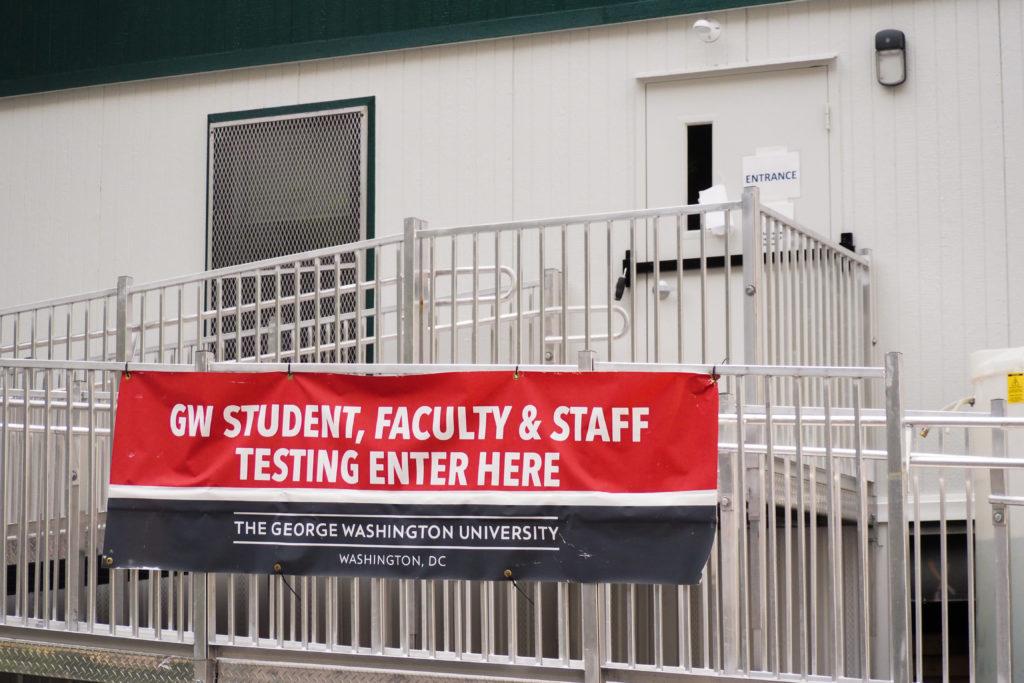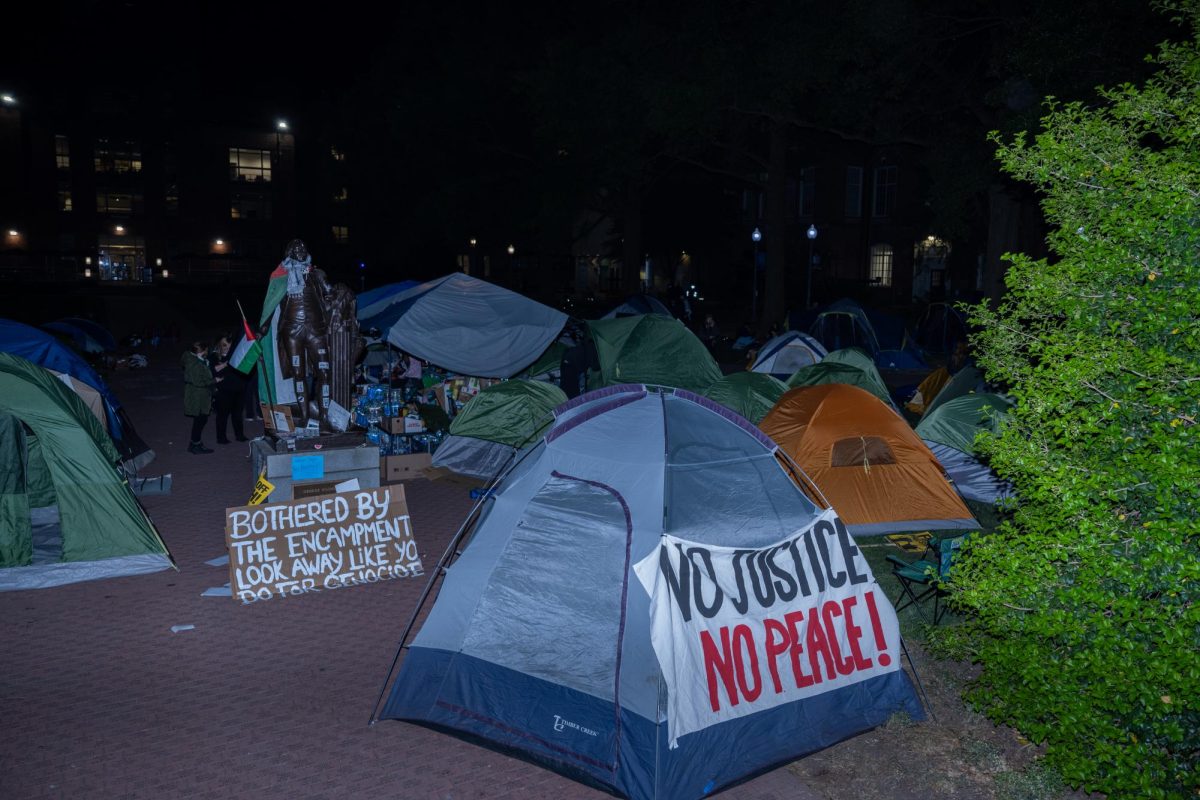Higher education institutions should prepare to roll back some reopening measures if COVID-19 cases fueled by the Delta variant rise significantly, experts in public health and education said.
University spokesperson Crystal Nosal declined to comment on the University’s contingency plans for the upcoming academic year in the event that COVID-19 cases spike, instead deferring to the “Onward GW” reopening plan that officials released in August. Experts said universities in urban areas with Democratic public officials are likely to be well equipped to handle a surge in COVID-19 cases because of their proximity to health care facilities and compliance with public health policies like mask or vaccine mandates.
GW’s plan outlines how the University would return to campus this fall with a set of COVID-19 precautions like a vaccination requirement, an indoor mask mandate and monthly COVID-19 testing.
“Even though the COVID cases have risen in the community, our layered approach to safety at GW makes working and learning on campus safer than most places,” Ray Lucas, GW’s COVID-19 coordinator, said in a release.
Nosal said GW and the District have stopped developing COVID-19 policies based on “stages,” which District officials used earlier in the pandemic to present and roll out the city’s reopening process and are instead making decisions on general metrics and transmission data.
Nosal declined to say whether a certain threshold number of cases would push officials to move classes fully online again.
A new study published in The Lancet Infectious Diseases journal found that the Delta variant poses double the risk of hospitalization. Roughly 116 people were hospitalized with COVID-19 late last week, according to District surveillance data.
The University’s reopening plan states that a team of public health officials and experts, led by Lucas, will continue to monitor COVID-19 transmission data and make recommendations about University health and safety policy.
GW is one of about 816 higher education institutions in the United States that have implemented some form of a vaccine mandate, placing it in a more secure position to hold out against a wave of Delta variant cases, experts said.
Alumnus Henry Smith, an assistant professor of education at Johns Hopkins University, said schools in urban areas and with vaccination requirements are most prepared to face a rise in Delta variant cases. Smith said cities have comparatively higher vaccination rates and urban leaders tend to implement vaccination and mask-wearing requirements for their constituents.
“These people are vaccinated and the mayors are forcing that, which makes it much easier on the president of George Washington University because the mayor of D.C. is ordering all kinds of people to be vaccinated,” Smith said.
Smith said universities should first close on-campus housing, refund room and board costs and move toward virtual and hybrid learning models if the rate of new COVID-19 variant cases becomes unmanageable.
Smith said the government and institutions of higher education are more prepared than they were at the start of the pandemic to deal with outbreaks and transition to virtual and hybrid learning because of their past experience.
He said universities like GW, which are affiliated with major hospitals and public health departments, will be in a stronger position than other universities to deal with a sudden surge in COVID-19 cases. He said these institutions have access to large medical and laboratory staff for testing and contact tracing programs.
Smith said the virtual learning models that higher education institutions developed over the last year are “perfectly appropriate” in the event that schools need to return to virtual instruction.
“Last year was that terribly overused phrase, ‘We built a bunch of aeroplanes while we were flying them,’” Smith said. “And I think that if anything happens, the institutions are ready and the government is ready.”
Anita Barkin, the co-chair of the American College Health Association’s COVID-19 task force, said schools should consider offering students and faculty more virtual or hybrid learning options, especially for those who cannot be vaccinated or are immunocompromised.
“I certainly think that that’s something for schools to consider,” Barkin said. “It depends on how highly vaccinated your campus is and whether you have a vaccination requirement, whether you are requiring masks and whether you can physically distance people in classrooms.”
Barkin also said the ACHA, which includes GW as a member, recommends schools roll out weekly COVID-19 testing programs for all students and direct their contact tracing and vaccination efforts toward unvaccinated community members. Vaccinated students, faculty and staff are required to receive monthly COVID-19 tests, while unvaccinated community members must receive a weekly test.
“Schools should have strong testing programs,” Barkin said. “They showed that they were more successful in managing, mitigating and having the ability to provide academic experience to their students.”
Lisa Lee, a professor of public health and the associate vice president for research and innovation at Virginia Polytechnic Institute and State University, said schools may have a difficult time containing COVID-19 this fall, based on the rising number of hospitalizations and infections.
“We see already that we are having infections, hospitalizations and even doubts at a level that we haven’t seen since the beginning of this year,” she said. “So we are already at that place.”
Lee said institutions that have spent the most time putting together comprehensive contingency plans will be in the best position to hold out against the spread of the Delta variants.
New York University’s reopening policy, updated in light of the spread of the Delta variant in New York City, is outlined similar to GW’s with a COVID-19 vaccination requirement, an indoor mask mandate and weekly testing.
Catholic University of America will not require students to be vaccinated against COVID-19 but will mandate indoor face coverings, regular physical cleaning, daily health screenings and testing 3 to 5 days upon arrival on campus.
“Like all universities, GW needs to have a plan, needs to let folks know what that plan is and implement that plan based on the best public health knowledge we have,” Lee said.








